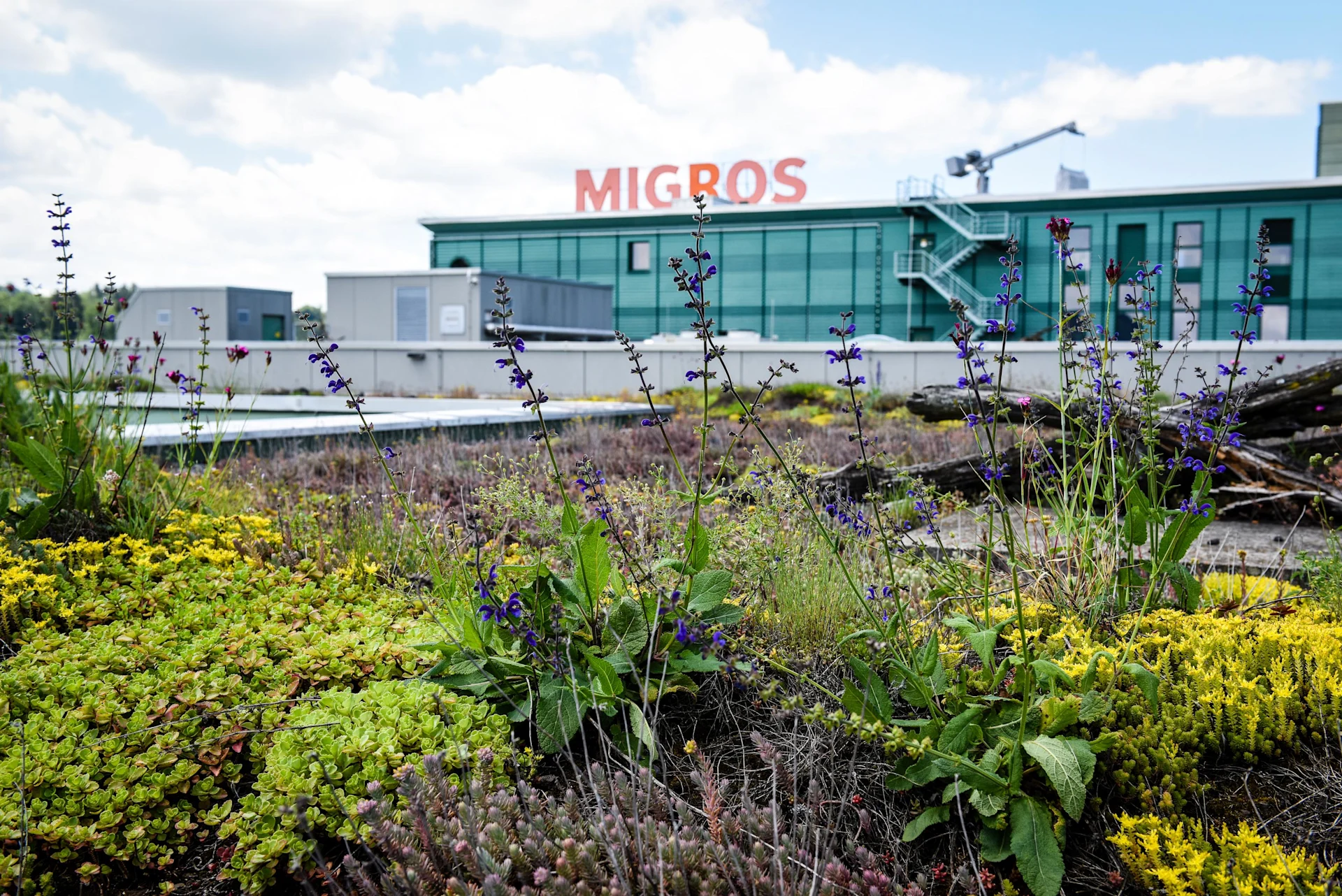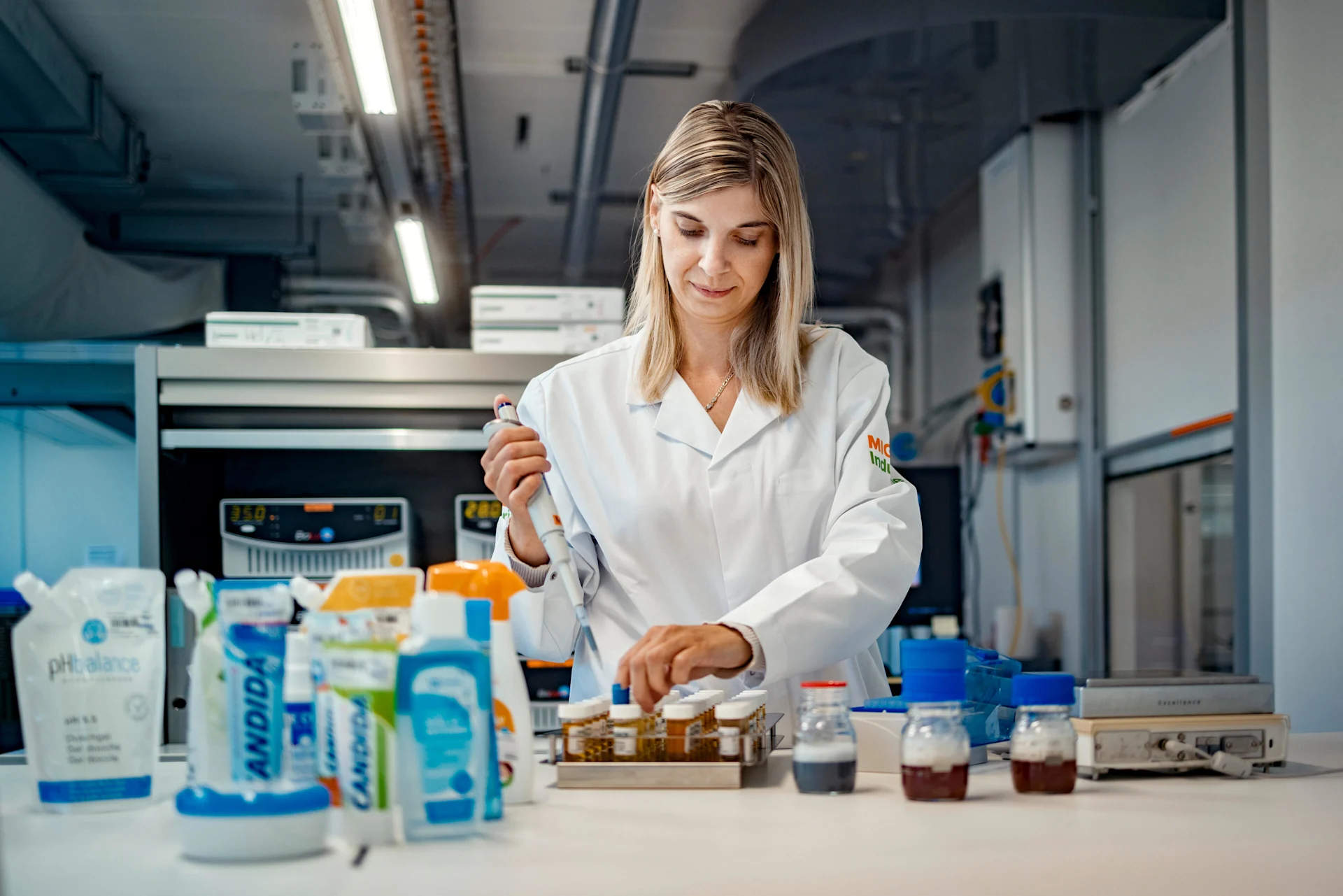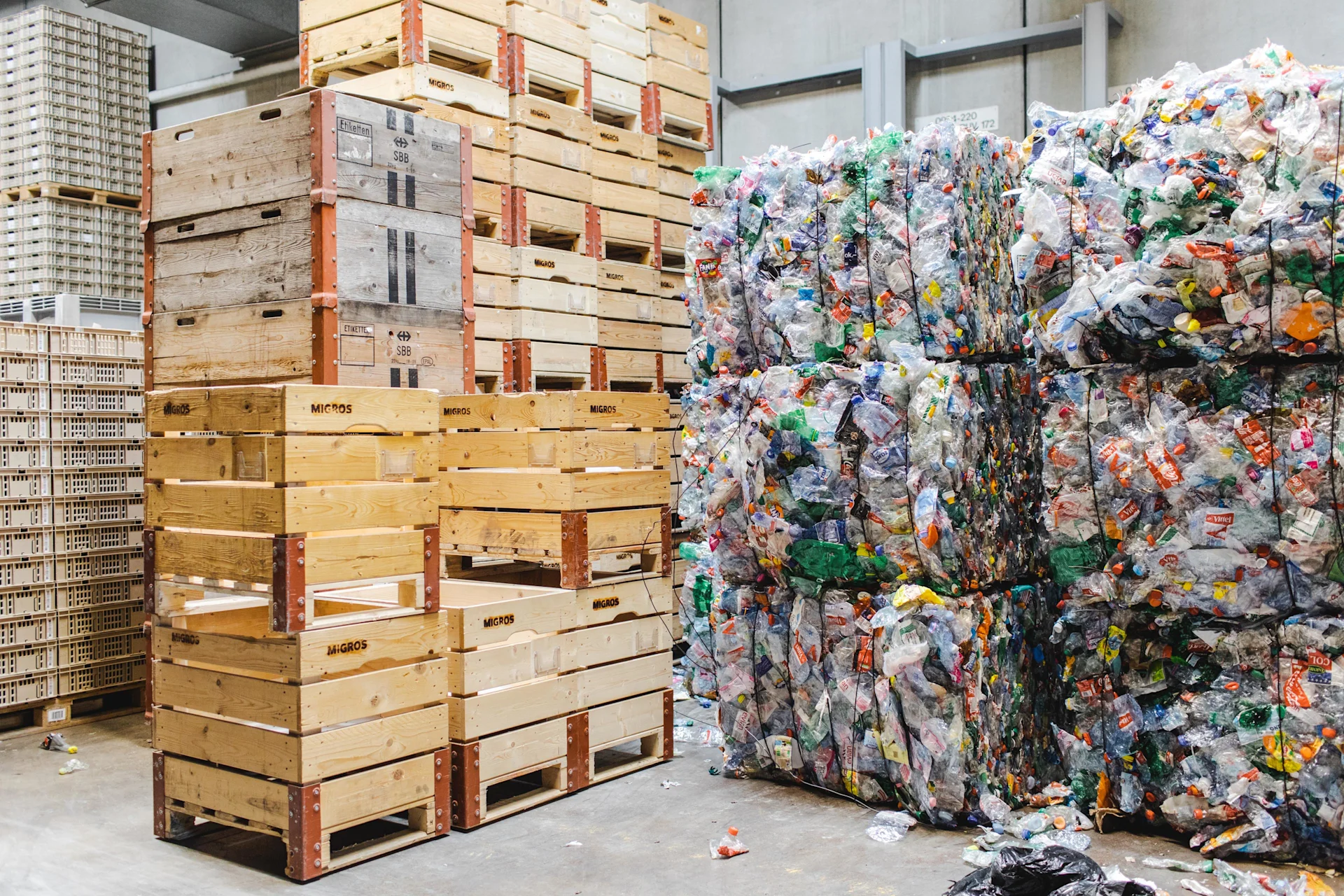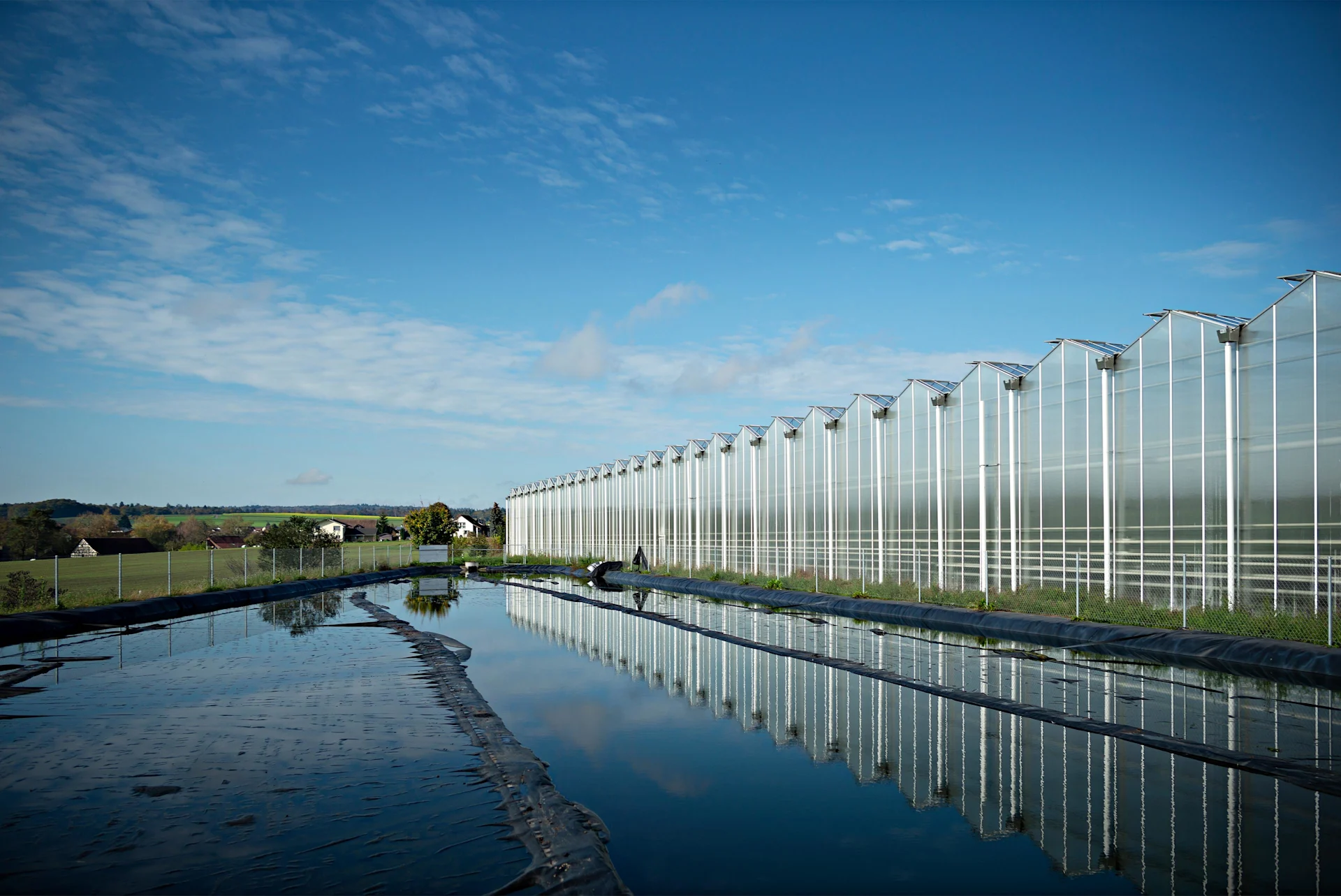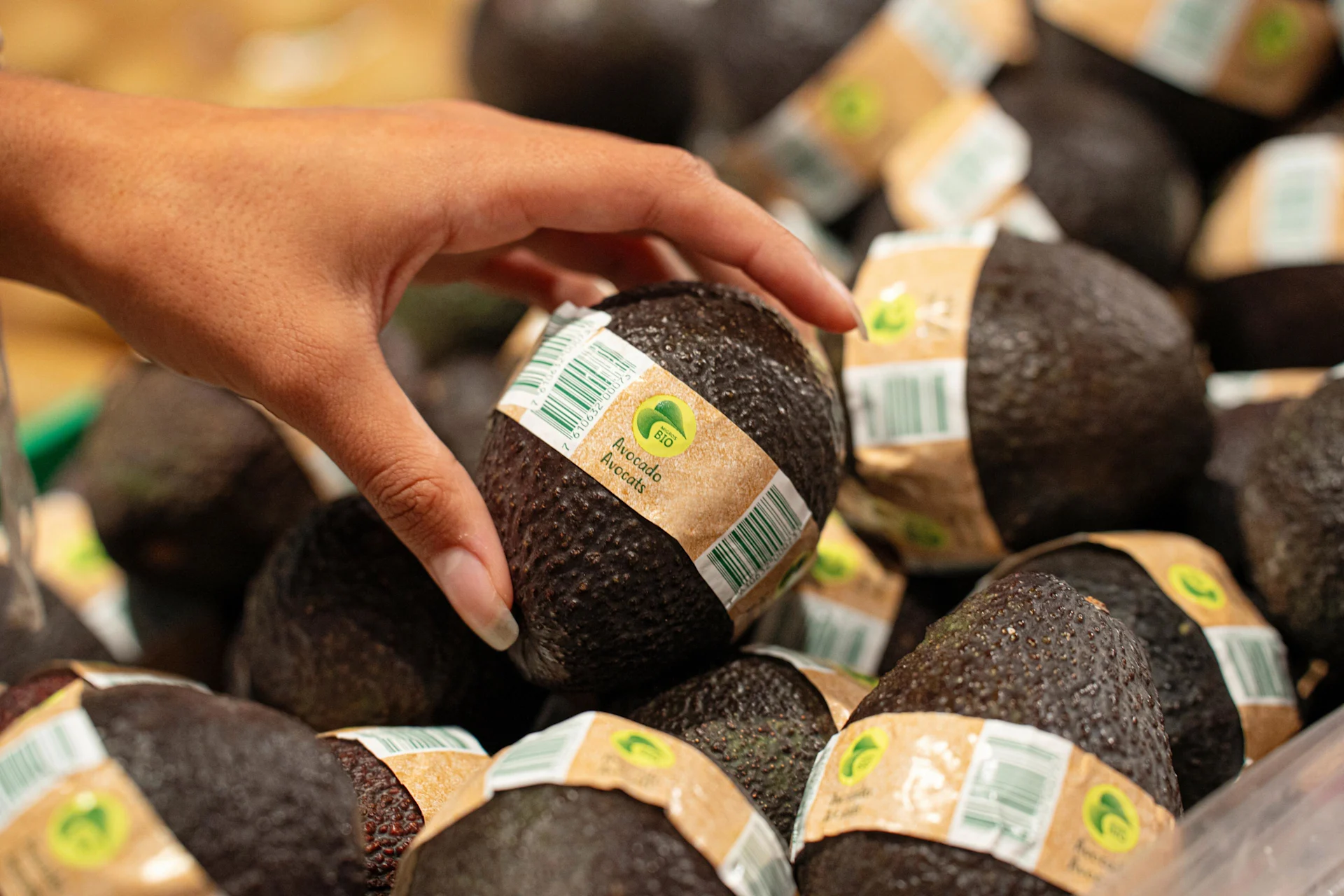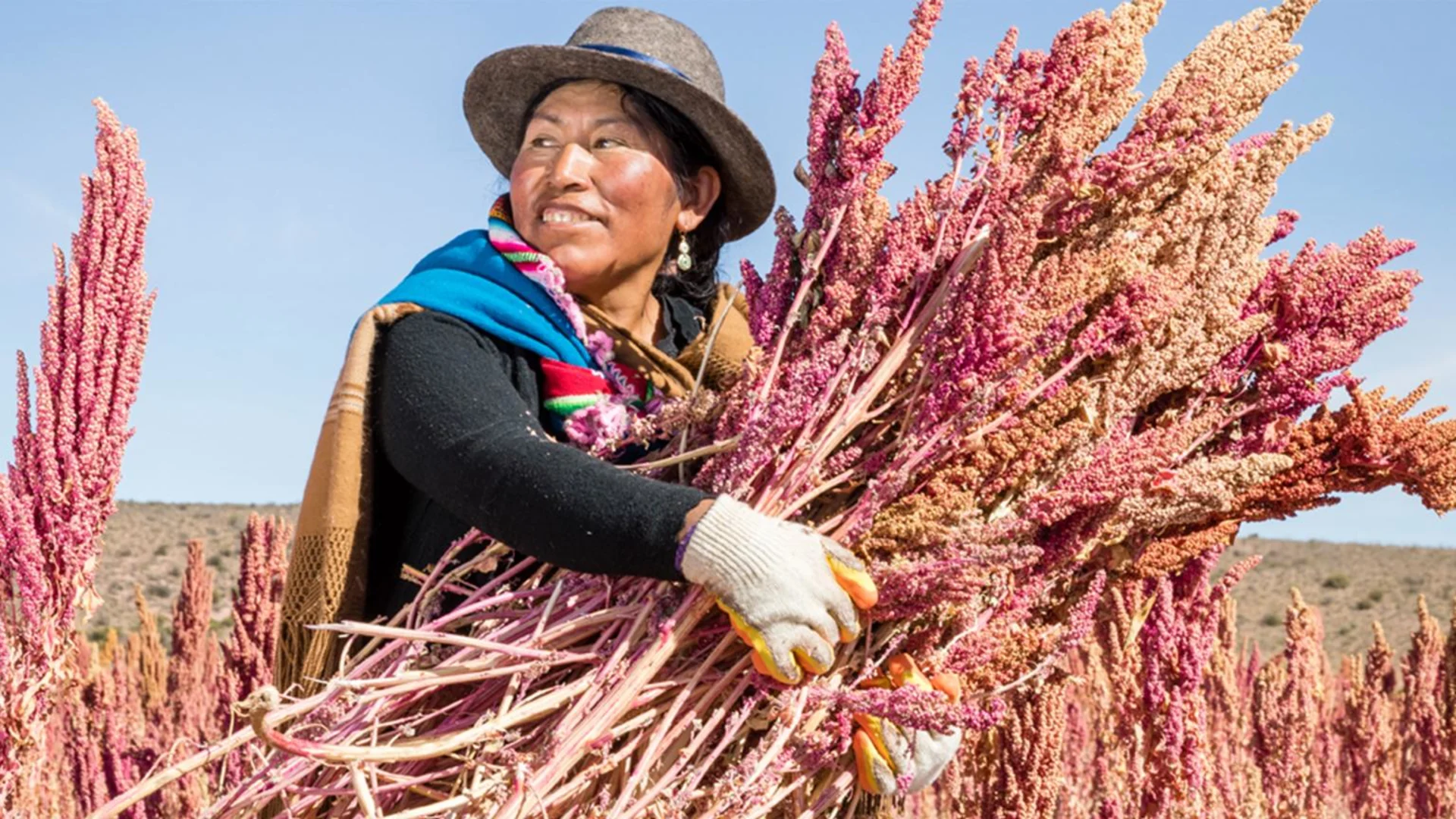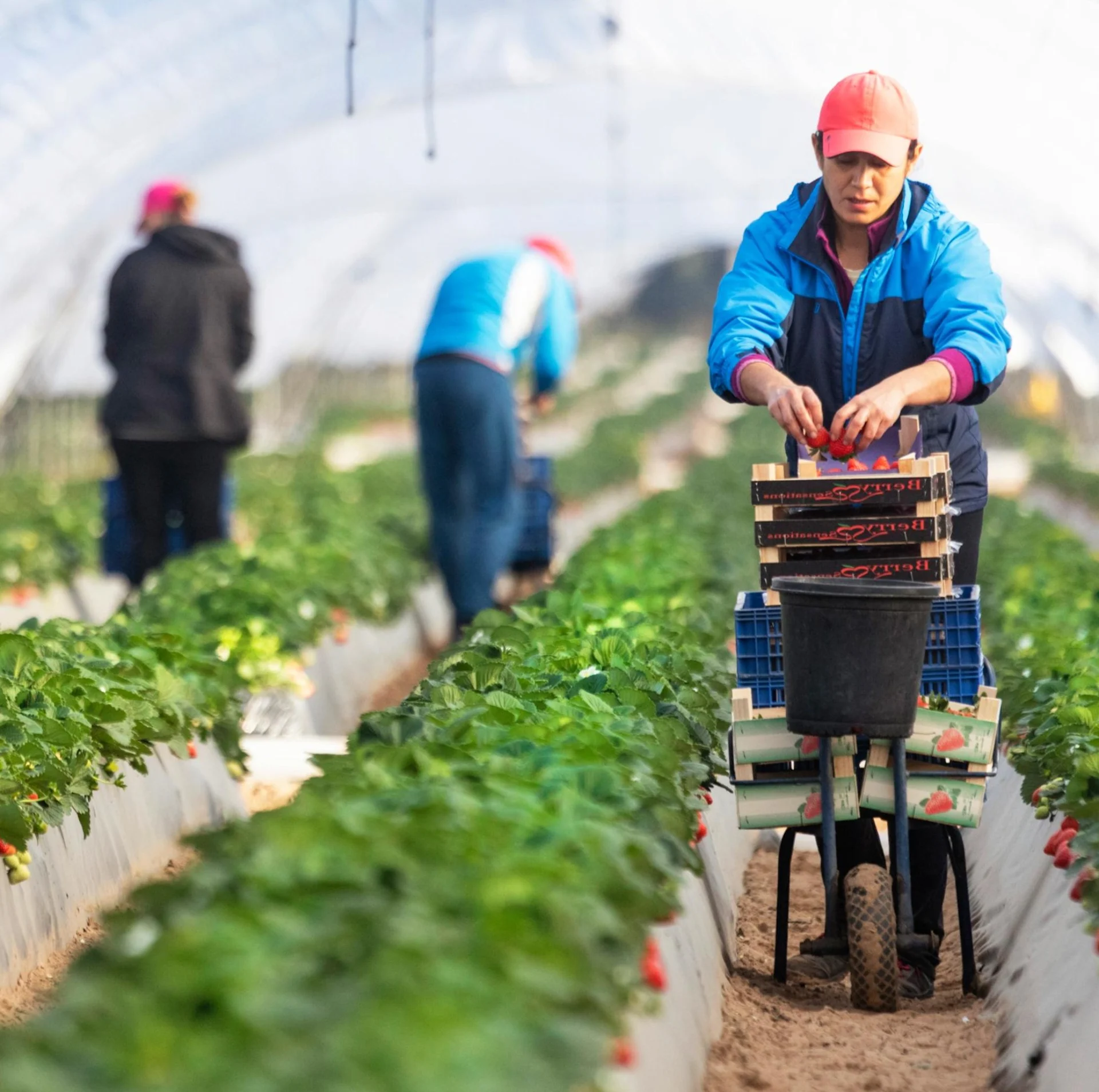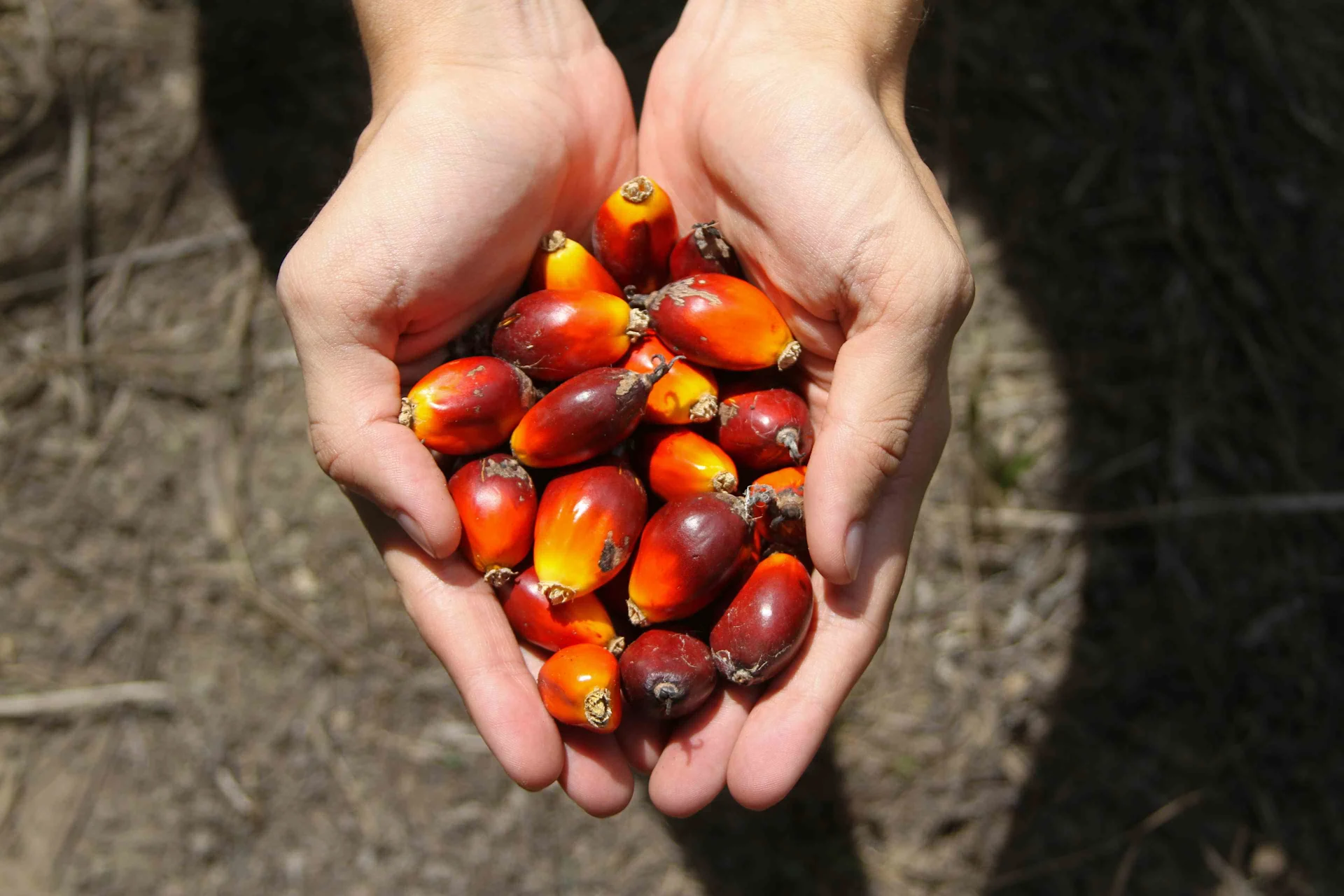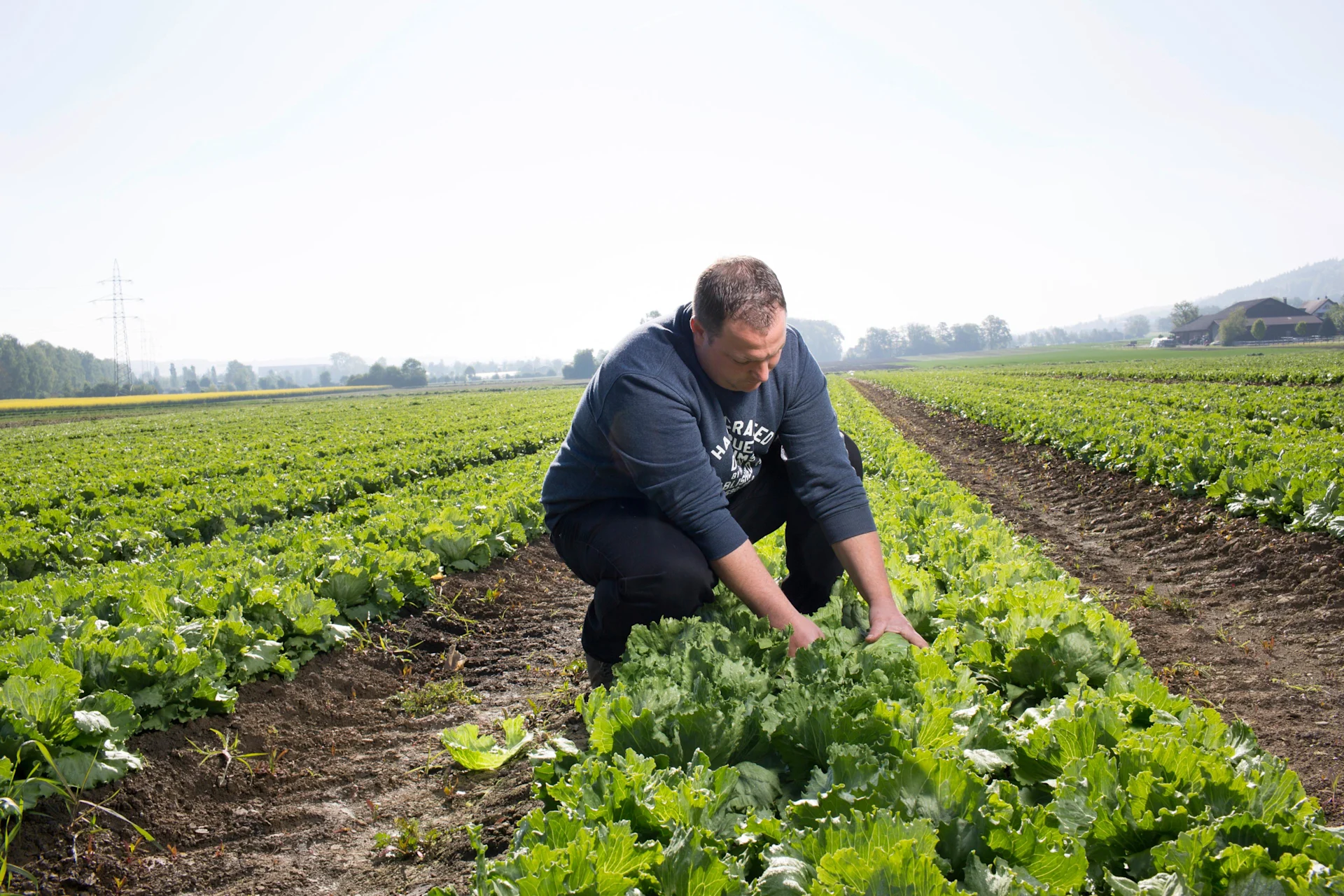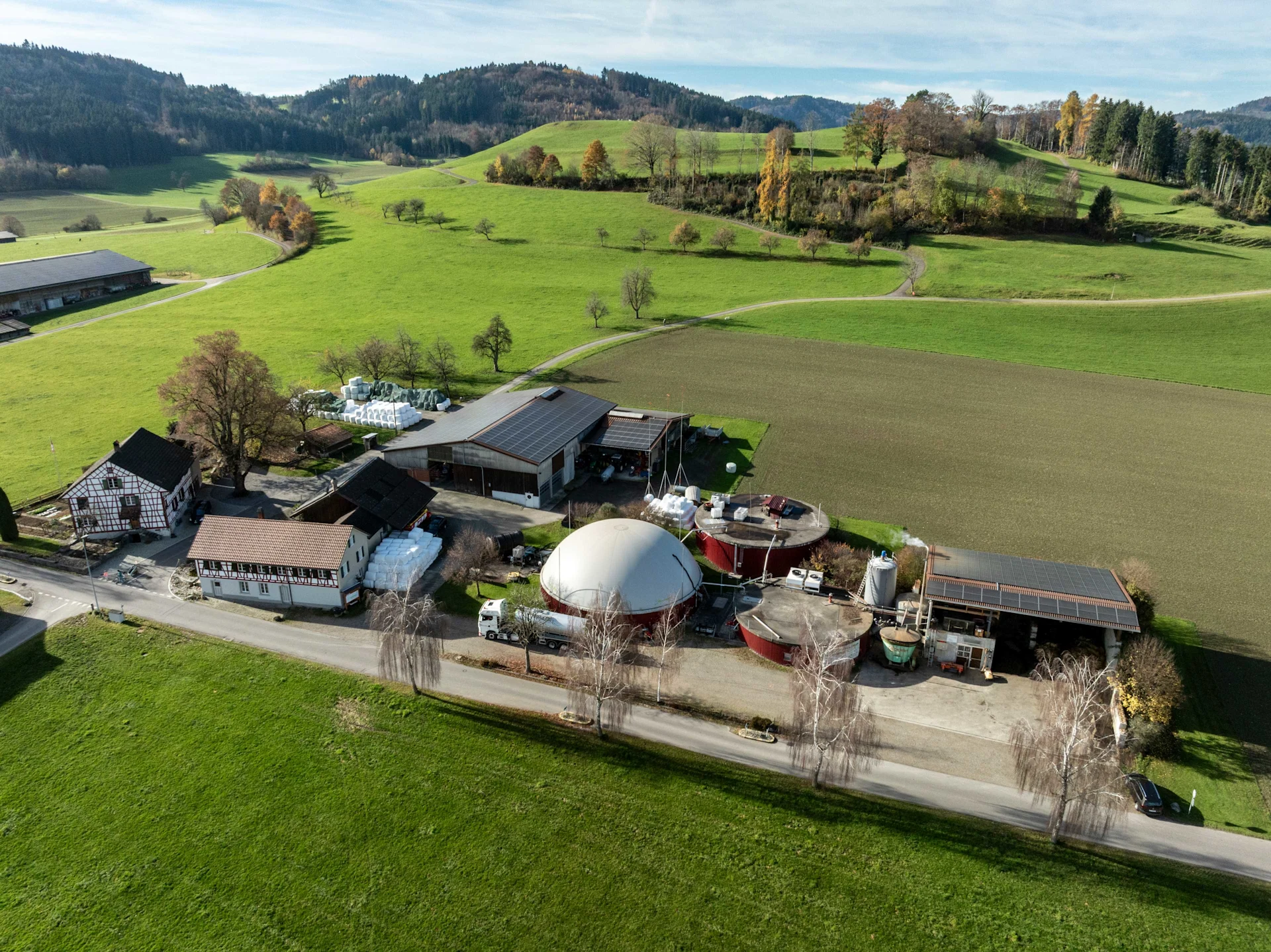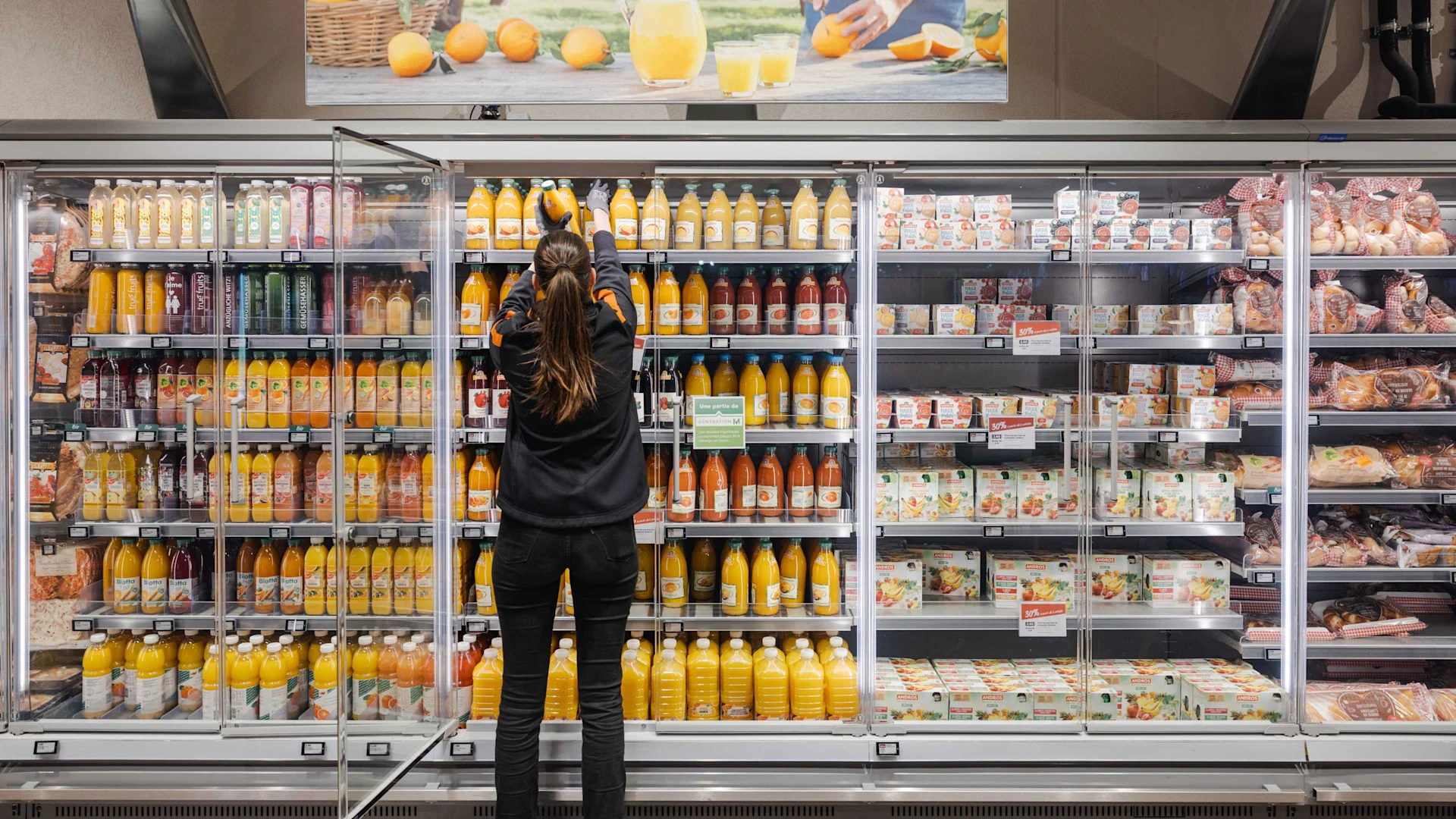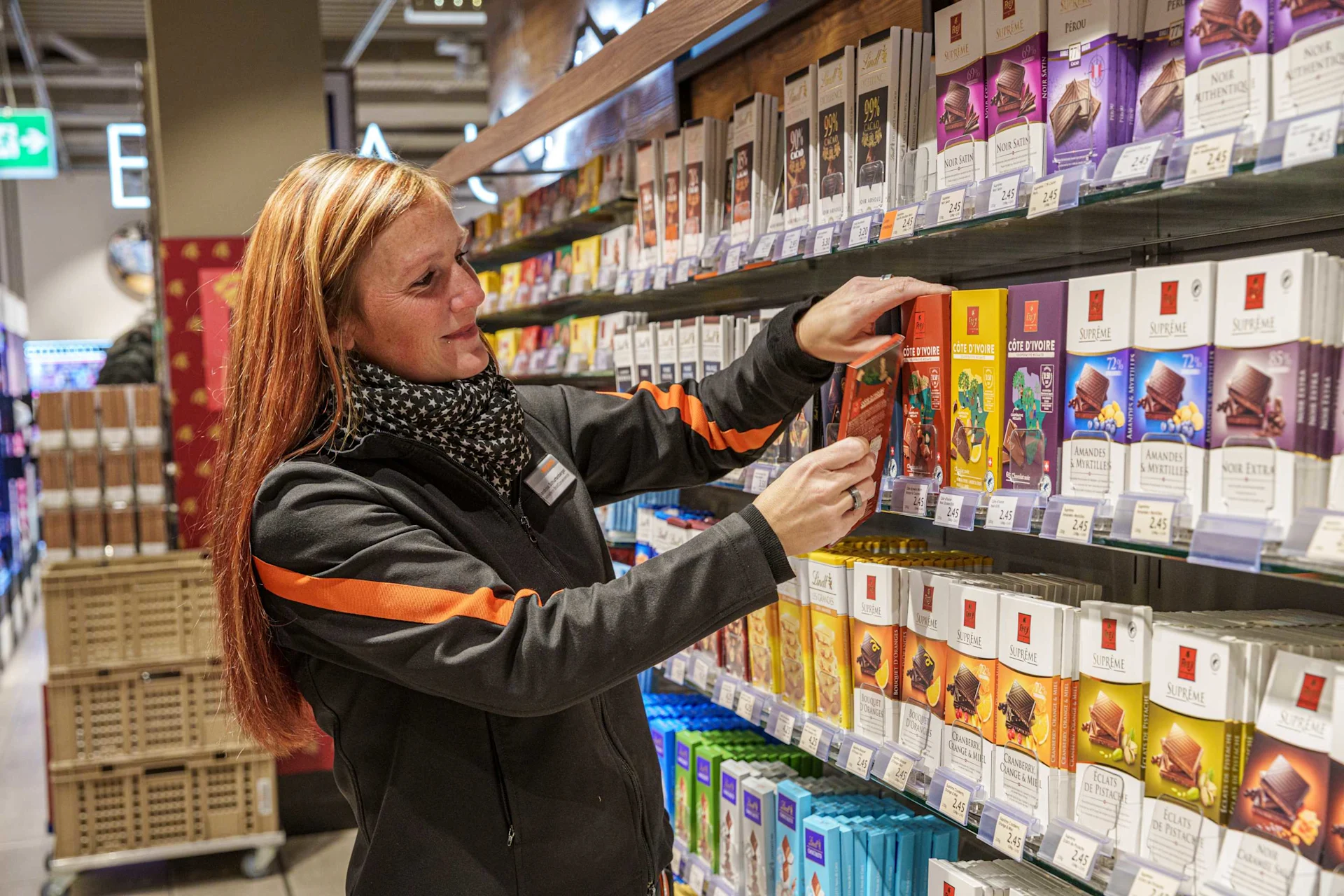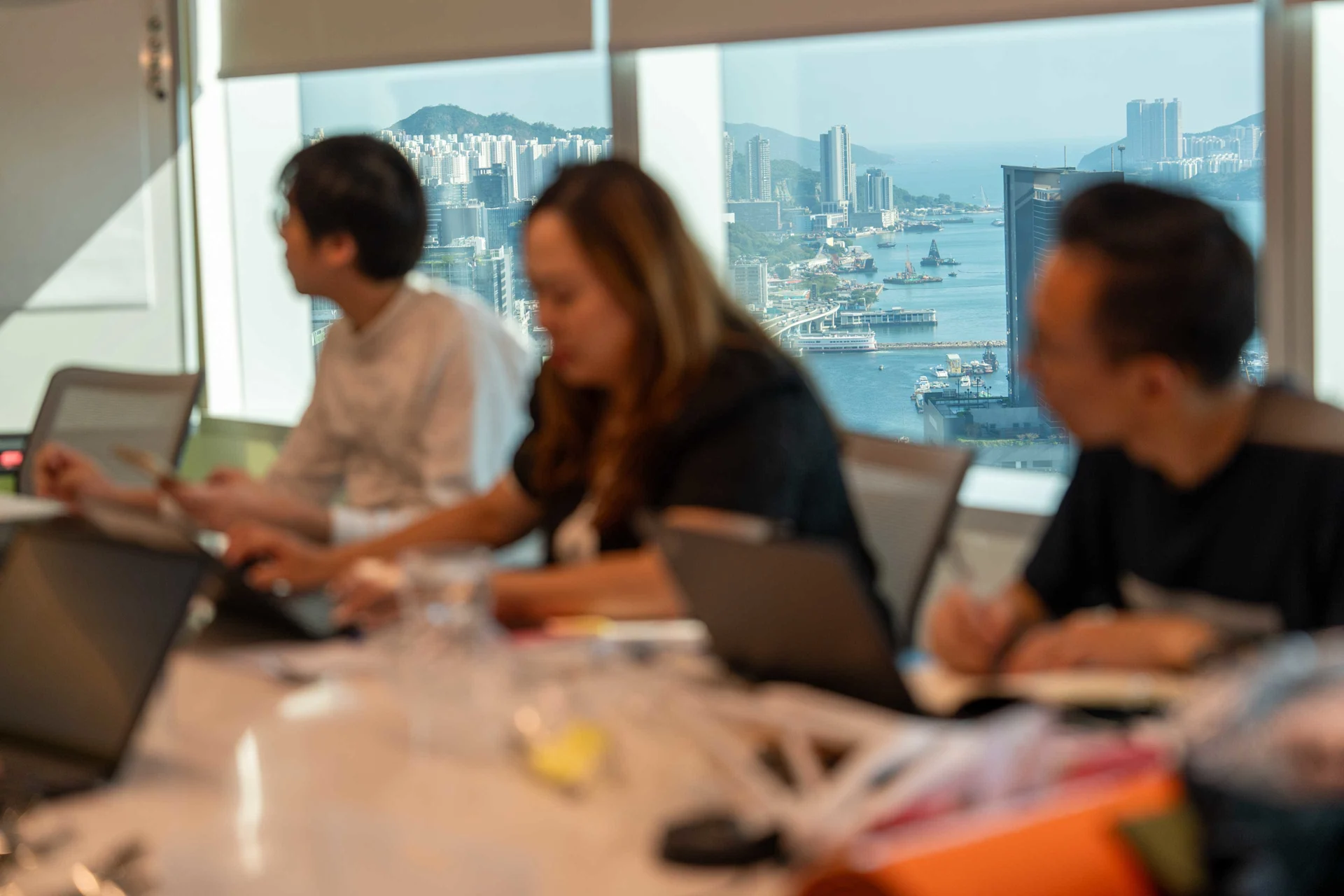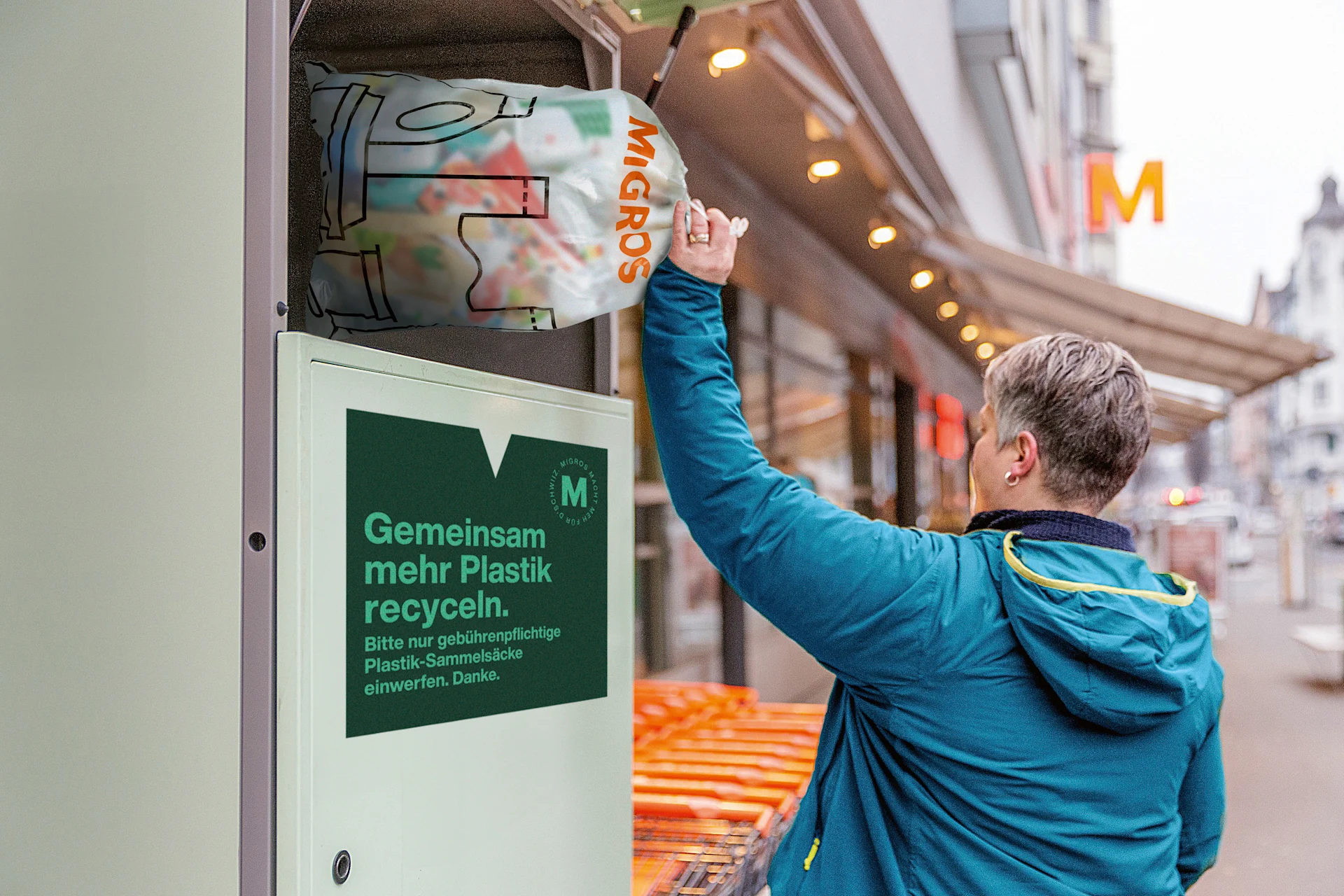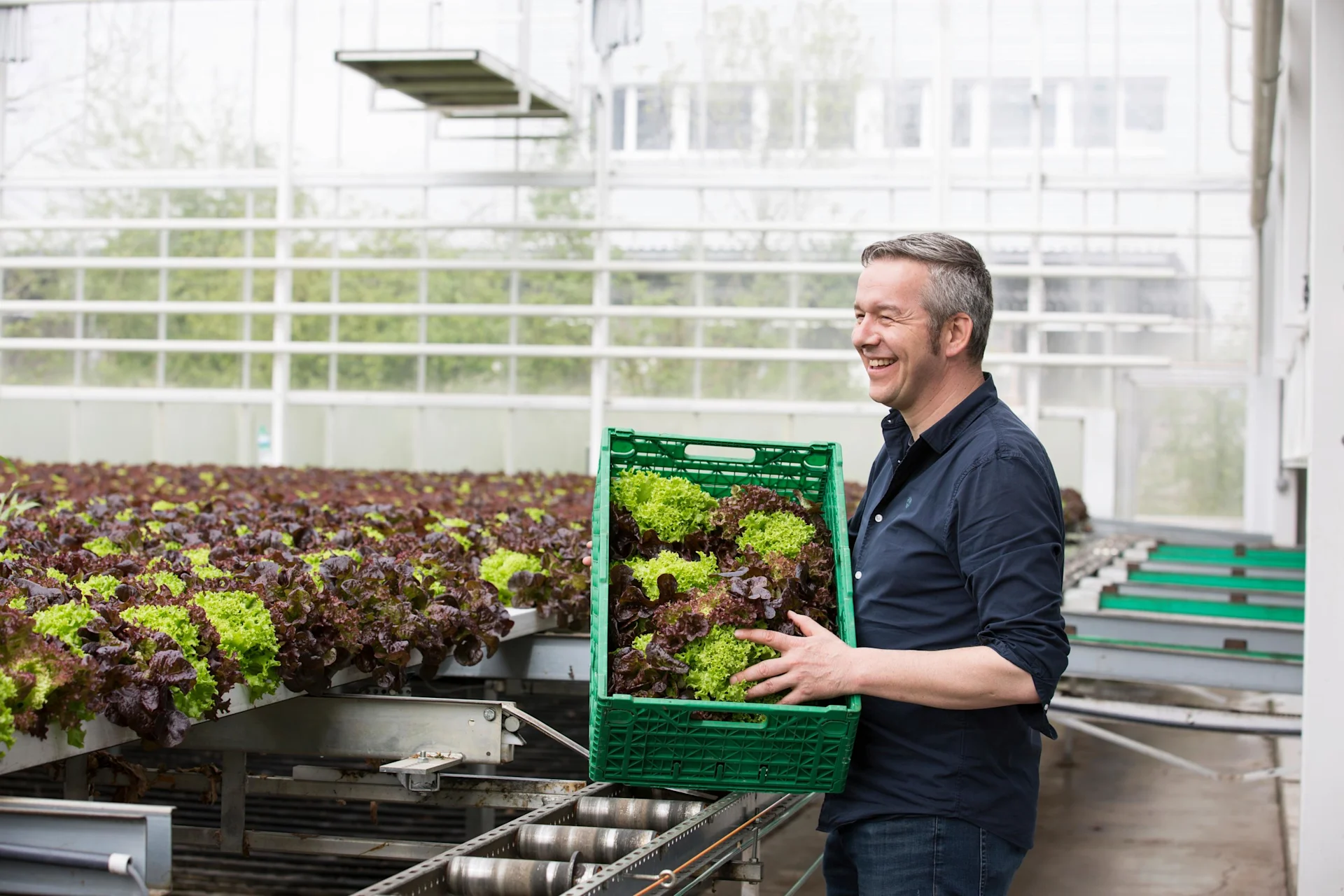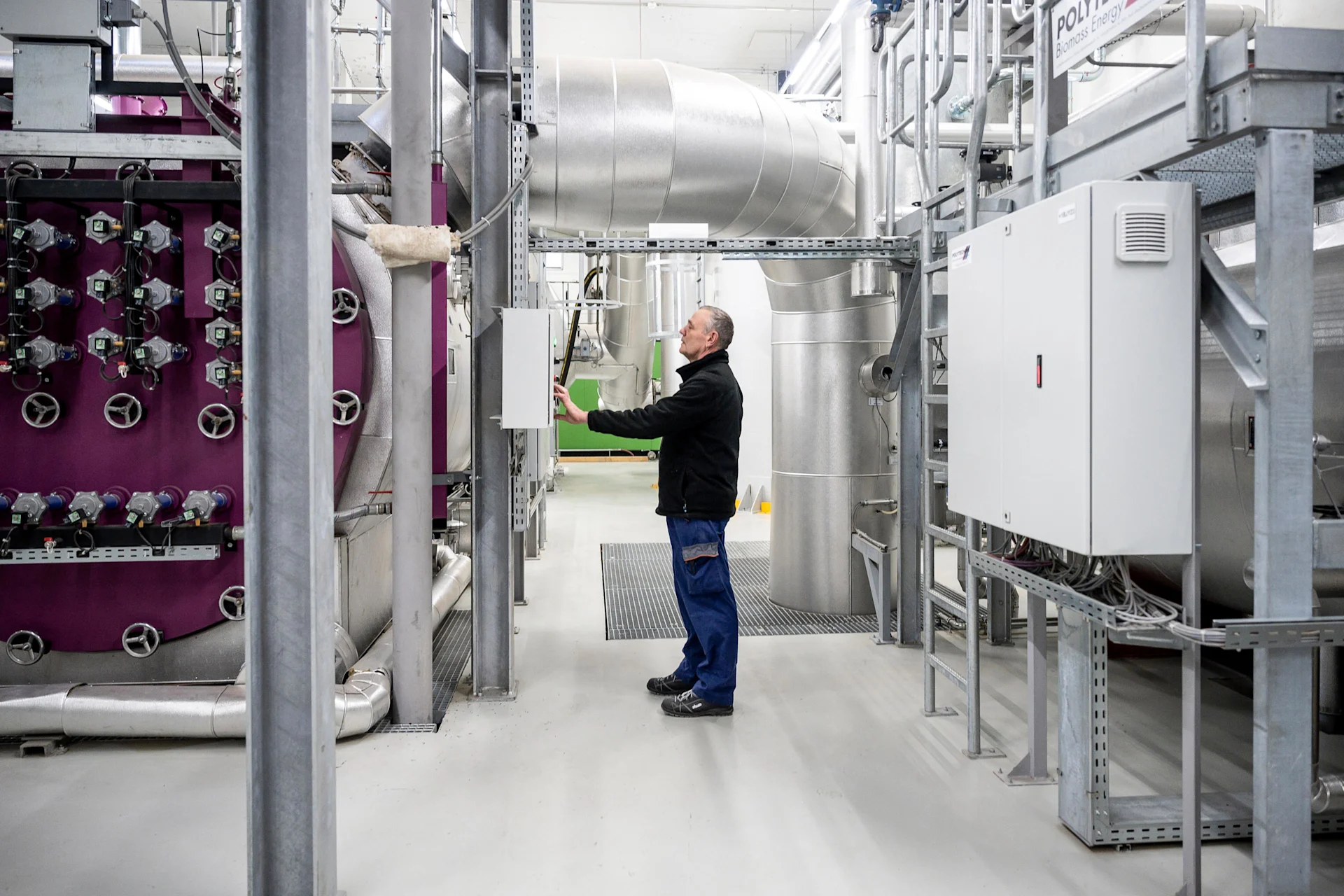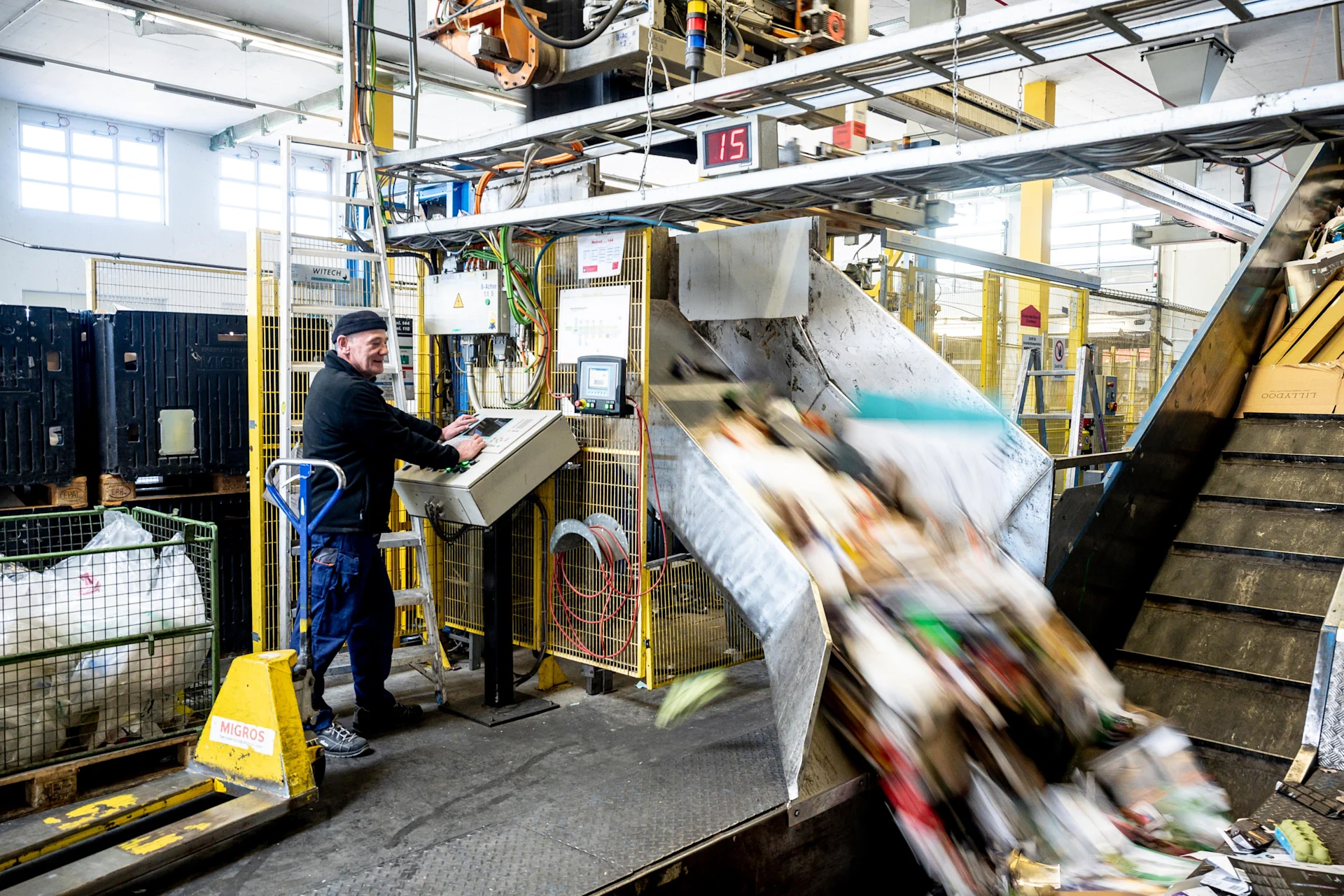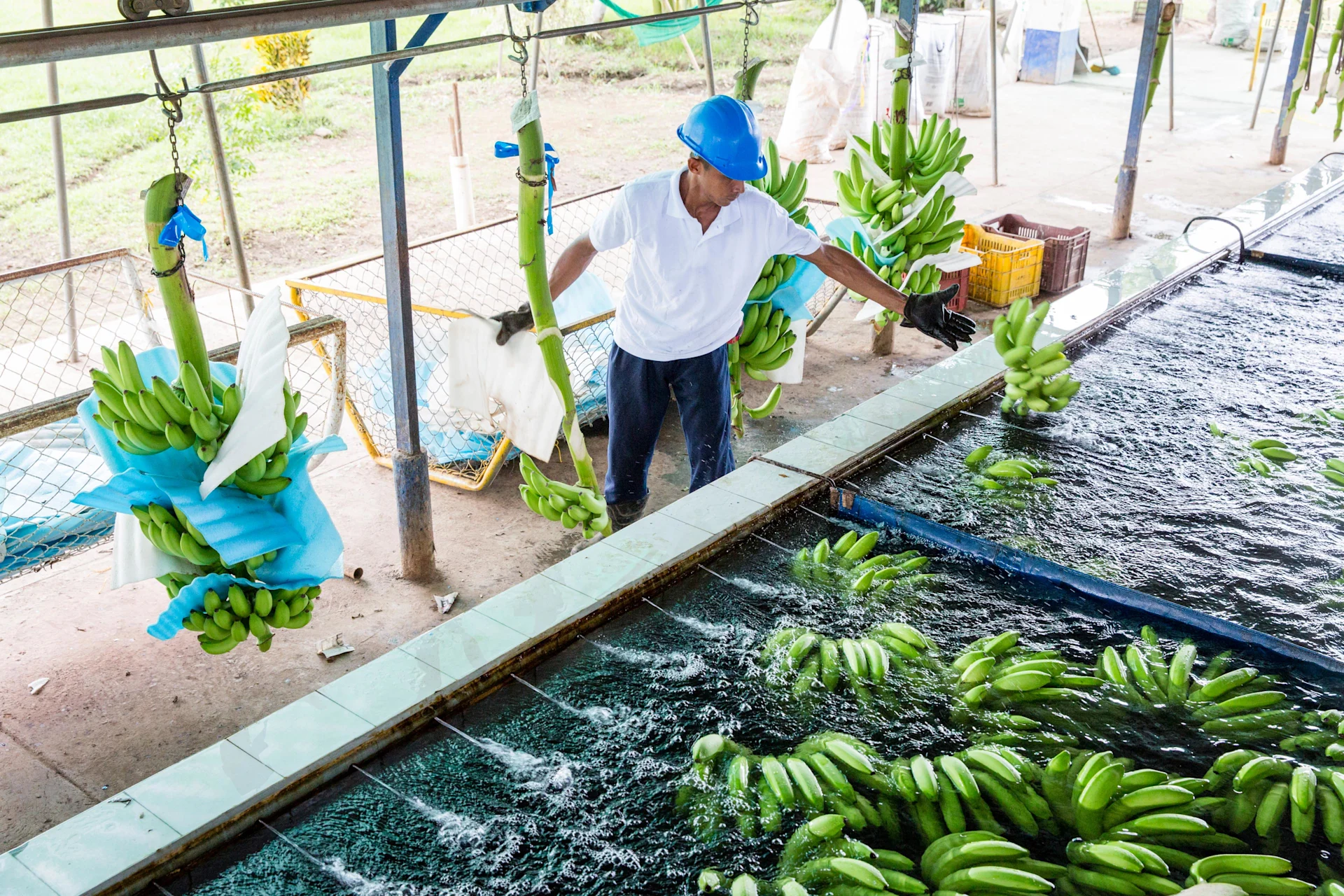Key topics
Our materiality analysis
Focus on the essentials
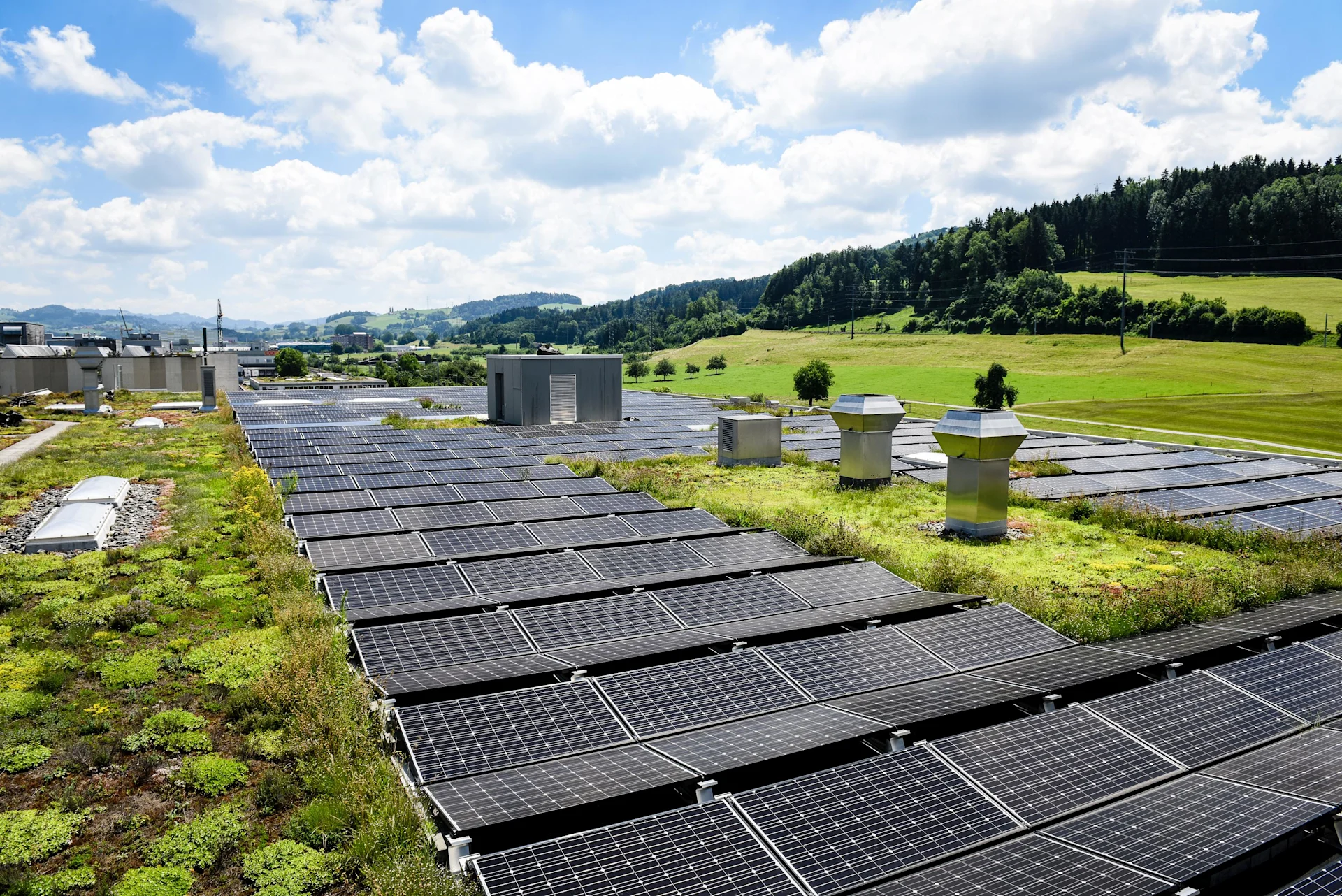
Sustainability is a broad field. To find out which sustainability topics are particularly relevant for us, we carried out a materiality analysis in 2023 in collaboration with external experts. An adjustment is scheduled for 2025 due to the revision of the Sustainability Strategy and changes within the Migros Group.
Why a materiality analysis?
In order to fulfil our duty of care, the first step is to identify the actual and potential negative impacts in which the Migros Group is or could be involved. On the one hand, we consider the impacts that are caused by our own activities or to which we contribute. However, we also consider impacts that are directly linked to our business activities, products or services through our business relationships.
The materiality analysis is also the basis for the further development of our Group-wide sustainability strategy (Revision by 2025). It determines the topics we consider in our sustainability reporting. In line with EU legislation, i.e. the Corporate Sustainability Reporting Disclosure (CSRD), we have already decided to implement our materiality analysis according to the “double materiality” methodology.This means that we have taken into account both the “impact of business activities on the environment, people and the economy” relevant to the Global Reporting Initiative (GRI) and the more far-reaching aspect of “risks and opportunities for our business success”.
In summary
This is how we proceeded
Initial situation
The Migros Group comprises various companies and is active in a wide range of business segments. This influences the nature of the actual and potential impacts, as these vary depending on the industry.
In order to adequately map our impacts, we have divided our largest companies into seven business segments and carried out a materiality analysis for each business segment. The results of the individual materiality analyses were summarised for the materiality analysis of the Migros Group.Distribution of everyday products: Migros supermarkets and hypermarkets (including restaurants), Migros Online, Denner, migrolino, tegut, etc.
Distribution of consumer goods: Migros specialist markets, Digitec Galaxus, Ex Libris
Food processing (including near-food): Migros Industry
Travel: Hotelplan Group
Financial services: Migros Bank
Energy & mobility: Migrol
Health & well-being: Medbase Group, Movemi AG, Miduca AG (Fitness division)
The Migros Group worked with external sustainability experts from LRQA (formerly Elevate) to develop the materiality analysis.
The first step was to identify the potentially material topics. These material topics are analysed in more detail in the subsequent process. We used recognised standards and legal requirements for this. These include the GRI Standards, the Sustainable Development Goals (SDG), the Swiss Code of Obligations CO 964 and EU legislation (CSRD). Stakeholder interests that we are aware of from regular dialogue were also taken into account. The expertise of our external sustainability experts from LRQA was incorporated into the definition of the list of topics to ensure comparability with other companies in the industry.Evaluation
Impact analysis
The aim of the impact assessment is to evaluate the impact of our business activities on the environment, people and the economy (inside-out). This is done for each previously defined topic along the entire value-added chain. The criteria of severity, scope, reversibility and probability were taken into account, as defined in the GRI guidelines. The assessment was carried out via expert evaluation, which in turn was based on information about the companies (such as number of employees, supply chain or value creation processes), external studies and specialist reports.
An impact assessment was carried out for each business area. The results were summarised for the Migros Group level and weighted according to turnover. At the end, the assessment result was validated in a workshop with representatives of all business areas.Risk and opportunity analysis
The risk and opportunity analysis looks at the impact of the topics on our business activities and our economic success (outside-in). To this end, representatives of all business segments took part in a workshop. In preparation for this, the participants assessed all topics for their business segment in terms of risks and opportunities (with values from 0 to 4). These assessments were discussed in the workshop and corrected where necessary based on the discussion. For the result at the Migros Group level, the individual rankings were combined and weighted again according to turnover.
Selection of key topics
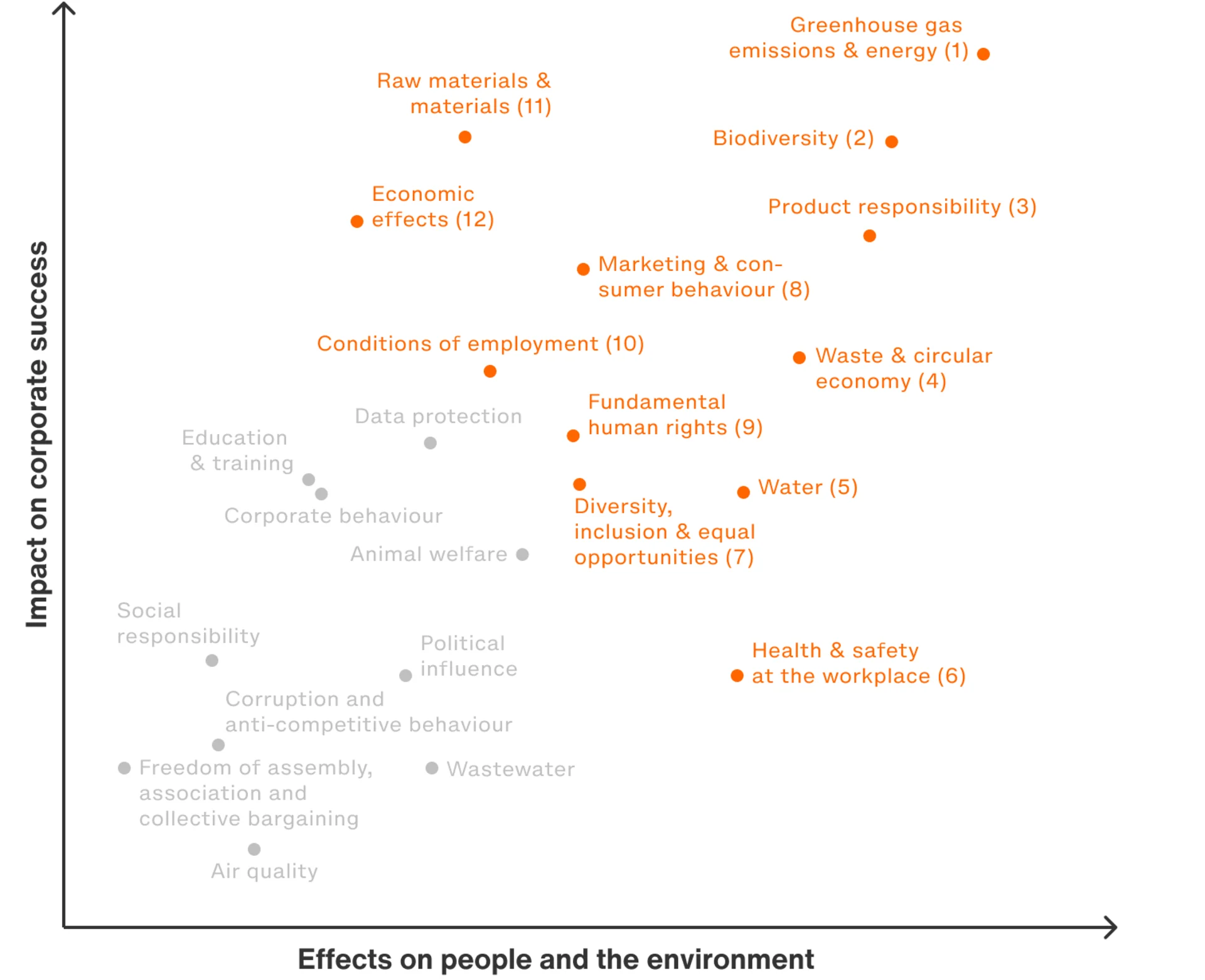
The results of the impact analysis and the risk and opportunity analysis were combined in a matrix for each business segment and for the Migros Group as a whole, with the x-axis representing the results of the impact analysis and the y-axis the results of the risk and opportunity analysis.
Key topics were identified:
Greenhouse gas emissions & energy (1)
Biodiversity (2)
Product responsibility (3)
Waste & circular economy (4)
Water (5)
Health & safety in the workplace (6)
Diversity, inclusion & equal opportunities (7)
Marketing & communication (8)
Fundamental human rights (9)
Conditions of employment (10)
Raw materials & materials (11)
Economic impact (12)
In order to select those topics that have a high impact as well as high risks and opportunities, our external sustainability experts defined a certain threshold value for each matrix (per business segment and for the Migros Group) and inserted a corresponding delimitation rectangle in the matrix. The impacts tended to be weighted more heavily in accordance with the GRI guidelines. The internal project team checked the plausibility of the proposals.
All topics to the right of the delimitation rectangle (see diagram) are material for the Migros Group. This means that these topics were selected for sustainability reporting in accordance with the GRI (topic standards).
The final result was approved in the relevant internal committees and by the member of the Executive Board of the Federation of Migros Cooperatives responsible for sustainability.Materiality matrix for download
Selection of the relevant GRI standards
There is no change to the GRI Topic Standards for reporting in 2024.
However, in order to create transparency across all OECD Guidelines, we are using the following GRI standards for the Sustainability Report in addition to the topics defined in the materiality analysis:GRI 407: Freedom of association and collective bargaining
GRI 205: Anti-corruption
GRI 418: Customer privacy
Sustainable in all areas
Sustainability is part of our DNA. Here you will find news and stories about sustainable living.


